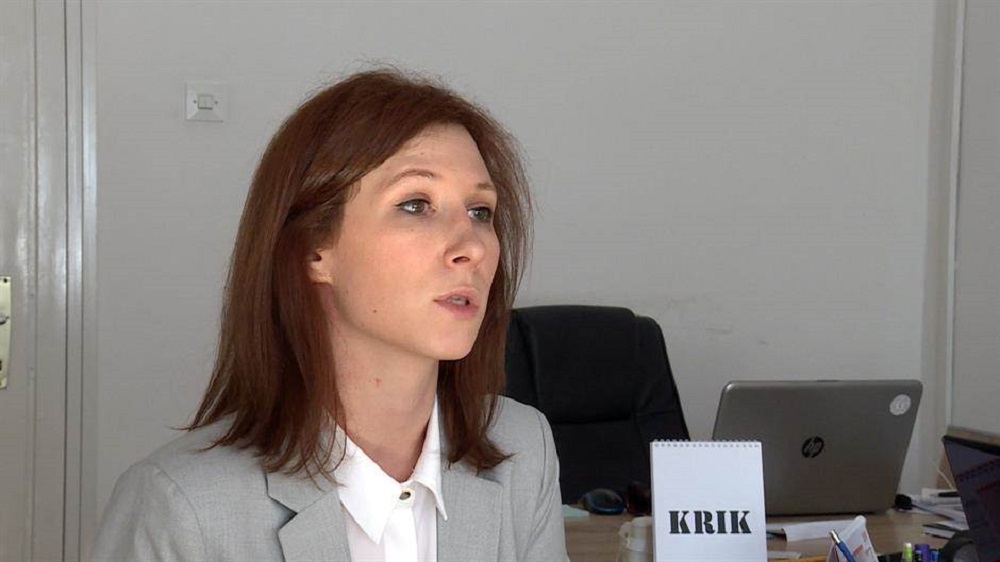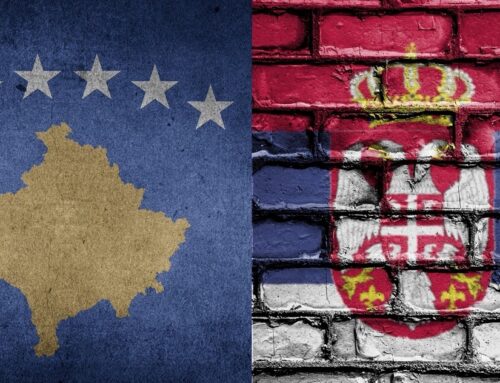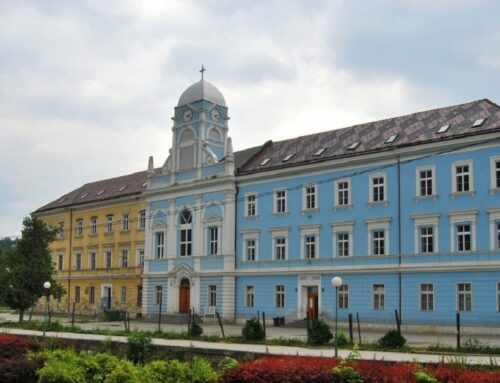Because of the global outbreak of COVID-19 pandemic worldwide, states have had to adopt decisions in urgency and in situations of necessity, sometimes bypassing the legislative process and declaring “national state of emergency”.
While, on the one hand, this has helped the work of governments to adopt appropriate measures to deal with difficult times, on the other hand, some of them have taken advantage of much less noble pursuits. Among other things, the way governments interact with the media is a source of concern.
The International Press Institute has implemented a tracking tool to track attacks on journalists and restrictions on press freedom amid efforts to tackle the current COVID-19 pandemic and after four months of work, It recorded violations in 15 of 34 monitored states.
In the last period, the worsening situation in Serbia made headlines worldwide. And it is no wonder considering that in August of this year Serbia was one of the most mentioned on the “Mapping Media Freedom” platform. In April, the President of the Independent Journalists’ Association of Serbia (NUNS) Željko Bodrožić warned on the possibility that the emergency state could have revealed “the intention of the government to silent media that are not under its control and to avoid the work of the independent journalists” [1].
Unlike in the past, today in Serbia there are not laws aimed to impede the press work, there are no mass arrests or homicides organized by the State, but certain dynamics call to mind the brutal campaign of the regime against journalists, under the war state, proclaimed in response to the NATO military intervention against the Federal Republic of Yugoslavia. One of the most extreme cases was the Slavko Ćuruvija’assassination, still without conclusion.
Although there are no such events, today the work of the independent information is made difficult by the government in many ways. For example, financially, the authorities are not only excluding them from the allocation of public funds, but are also trying to hamper their attempts to attract new advertisers,” said Bodrožić [2].
During these months, the Vučić government created a “new model of the press conference”, deleting the debate by answering only to the question provided in advance, limiting the work of the journalists and making it impossible the possibility of any uncomfortable question.
It is true that the Serbian government agreed and participated to the creation of “a new strategy for medias” by sending its representatives to the Permanent Working Group for the Security of Journalists [3], but it is also true that the underlying intention seems to be meeting the deadlines imposed by the EU and linked to the accession process. Indeed, while the working group said it would accept requests from independent media, the government has continued to label them as enemies of the State.
This passive-aggressive behaviour seems to be merely the tip of the iceberg. In the past few months, episodes have grown in intensity and frequency.
In June, Bojana Pavlović, KIRK journalist, photographed Danilo Vučić, President’s son, in a bar in company of Aleksandar Vidojević, hooligan on trial for having participated on the destruction of a nightclub, but he also results in the Serbian police database as a member of one of the most powerful criminal group involved in the drug trafficking in the Balkans [4].
A few streets later, the journalist was approached by 3 men posed as public officials who asked her to delete the photos and they called the police. Other 2 men forcefully took her mobile phone out of her hands and the police didn’t react. Vidojevic approached the journalist and instructed the man to return her the mobile phone, he did so and they left [5].
The Photo was published anyway because Pavlović had already sent the photos to KRIK [6].
In July the Balkan Investigative Reporting Network (BIRN), the Centre for Investigative Journalism of Serbia (CINS), Crime and Corruption Reporting Network (KRIK), the Novi Sad Journalism School, both of Serbia’s major journalism associations and a host of rights groups have been put on a list compiled by The Directorate for the Prevention of Money Laundering based out of the Ministry of Finance. The Directorate demanded access to their bank records to determine whether those organizations are connected to money laundering or operations to finance terrorism [7]. “it is a different way to exert pressure on those who criticize Vučić and the government” declared Bodrožić to the television channel Newsmax Adria Serbia and also Media Freedom Rapid Response (MFRR) seems to think so [8].
Mapping Media Freedom site reports several threats and physical aggressions against journalists critical towards the government and its politics. The latest article is dated 2nd December and it reports that during a Parliament session Biljana Pantic Pilja, deputies of the ruling Serbian Progressive Party (SNS), the same party of the President Aleksandar Vučić, did a speech in which she qualified Serbian TV channels N1 and Nova S as “anti-Serb media”. She added also “there is not a bit of independence, and only one sentence can describe them – domestic traitor and foreign mercenary”.
Some other member added that “they want to create an atmosphere in which someone from criminal groups in the region can physically eliminate Vučić because he bothers them”. It constitutes an abuse of the Parliament session, but none of those presiding the session attempted to stop the verbal violence against the two independent TV channels.
Even though the greatest part of the information distribution system and the journals have been under the control of the government or of businessmen loyal to the President, lately the situation appears tragic. Serbia fell to the 93rd place in the list based on the world press freedom index [9].
Some newspapers and television channels survive thanks to EU aid and funding but they are struggling and the situation does not seem likely to improve anytime soon.
The degree of democracy of a country is often measured by its freedom of information and it is therefore not surprising that Freedom House has downgraded Serbia from a “free country” to a “hybrid regime” [10].
References:
[1] https://www.balcanicaucaso.org/aree/Serbia/Zeljko-Bodrozic-lo-stato-di-emergenza-soffoca-i-media-serbi-201029
[2] https://www.balcanicaucaso.org/aree/Serbia/Zeljko-Bodrozic-lo-stato-di-emergenza-soffoca-i-media-serbi-201029
[3] https://www.srbija.gov.rs/vest/en/164777/government-passes-decision-on-formation-of-working-group-for-protection-of-journalists.php
[4] https://www.balcanicaucaso.org/aree/Serbia/Serbia-legami-pericolosi-202921
[5] https://safejournalists.net/ijas-urgently-determine-who-intercepted-and-confiscated-the-equipment-of-the-krik-journalist/
[6] https://www.krik.rs/novinarki-krik-a-oduzeli-telefon-dok-je-fotografisala-danila-vucica-i-acu-rosavog/
[7] https://www.balcanicaucaso.org/aree/Serbia/Serbia-media-indipendenti-e-ong-nel-mirino-del-governo-204116
[8] https://www.rcmediafreedom.eu/News/Serbia-authorities-launched-a-financial-investigation-into-journalists-media-and-civil-society-organisations
[9] https://rsf.org/en/ranking
[10] https://freedomhouse.org/country/serbia/freedom-world/2020





